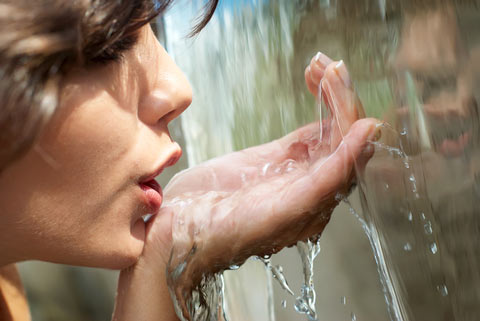With many areas expecting dangerously hot temperatures and high humidity again this weekend, the Department of Health is reminding Pennsylvanians to take simple steps to prevent heat-related illness.
“Temperatures may feel over 100 degrees or more in many areas, so taking the proper precautions against heat-related illness will be very important,” said Department of Health Secretary Dr. Eli Avila.
Healthy people of any age can experience heat-related illness when their bodies are unable to handle the high temperatures. Those at greatest risk are people over 65, infants and young children, and those with heart disease, high blood pressure, breathing problems or other chronic conditions.
Poor air quality often associated with hot weather can add to the health risks. Ground-level ozone, a key component of smog, forms during warm weather when pollution from vehicles, industry, households and power plants “bakes” in the hot sun. Young children, the elderly and those with respiratory problems, such as asthma, emphysema and bronchitis, are especially vulnerable to the effects of air pollution and should limit outdoor activities when this occurs.
Individuals should do the following to avoid heat-related illness:
- Stay indoors in air conditioning as much as possible. Air conditioning is the number one protective factor against heat-related illness and death;
- Drink plenty of water throughout the day, and don’t wait until you are thirsty to drink liquids. Avoid drinks with caffeine, alcohol or large amounts of sugar as they can cause dehydration (loss of body fluids);
- If you must be outside in the heat, limit activity to morning and evening hours, and try to rest often in shady areas;
- Dress in light-colored, loose-fitting clothing and consider wearing a wide-brimmed hat and sunglasses. Also use a sunscreen of SPF15 or higher;
- Check on those who may be more at risk from high temperatures like infants, children or older individuals; and
- Never leave your children or pets in vehicles.
The two most common types of heat-related illnesses are heat exhaustion and heat stroke, which is more serious.
Someone suffering from heat stroke may experience a body temperature above 103 degrees; red, hot, and dry skin; rapid, strong pulse; throbbing headache; dizziness; nausea; confusion; and unconsciousness. If someone is experiencing heat stroke, call for emergency medical assistance via 911 and attempt to cool the person off in a shady place while waiting for help to arrive. Heat stroke can cause death or permanent disability if emergency treatment is not provided.
Heat exhaustion can occur after sun exposure or not drinking enough fluids after spending time outside. Symptoms of heat exhaustion are heavy sweating, paleness, muscle cramps, tiredness, weakness, dizziness, headache, nausea or vomiting, and fainting. To treat heat exhaustion, rest, drink plenty of water and cool off the body. If not treated, heat exhaustion could result in heat stroke.
During heat waves, many communities and organizations such as senior centers set up “cooling stations” offering residents shelter from the heat. Contact your local government for information on cooling station locations. Additionally, many of Pennsylvania’s 52 Area Agencies on Aging are ready to assist older adults during dangerously hot weather. To learn more, visit www.aging.state.pa.us.
Source: Pennsylvania Department of Health

